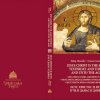Film “Spomenik Majklu Džeksonu” osvojio je nagradu za najbolji film - Eastern European Film Award, na Internacionalnom festivalu u Santa Barbari koji se ove godine održava 30. put.
Ostvarenje reditelja i scenariste Darka Lungulova prikazano je, kako se navodi u saopštenju, u Programu istočno-evropskih filmova a ovo je ujedno bila i njegova američka premijera.
Lungulovu je nagradu uručio direktor festivala Rodžer Durlings, a zbog izuzetnog interesovanja film je imao dodatnu projekciju tako da je prikazan četiri puta pred punom salom.
.“Spomenik Majklu Džeksonu” će imati još jednu projekciju tokom sledećeg vikenda u okviru programa Pobednici festivala.
Lungulov je primajuči nagradu je rekao da mu je velika čast što je njegov film nagrađen na festivalu koji iskreno slavi filmove i autore i tako uspešno spaja neke od najboljih autora, nezavisne autore, obrazovanu publiku i izvanredan program.
Na festivalu u Santa Barbari specijalni gosti bili su glumci nominovani za Oskara: Majkl Kiton, Itan Hok, Patriša Arket, Stiv Korel, kao i reditelji i scenaristi Ričard Linklejter (Boyhood) i Damien Ćazele (Whiplash) koji su dobili specijalna priznanja.
Izvor: Tanjug




